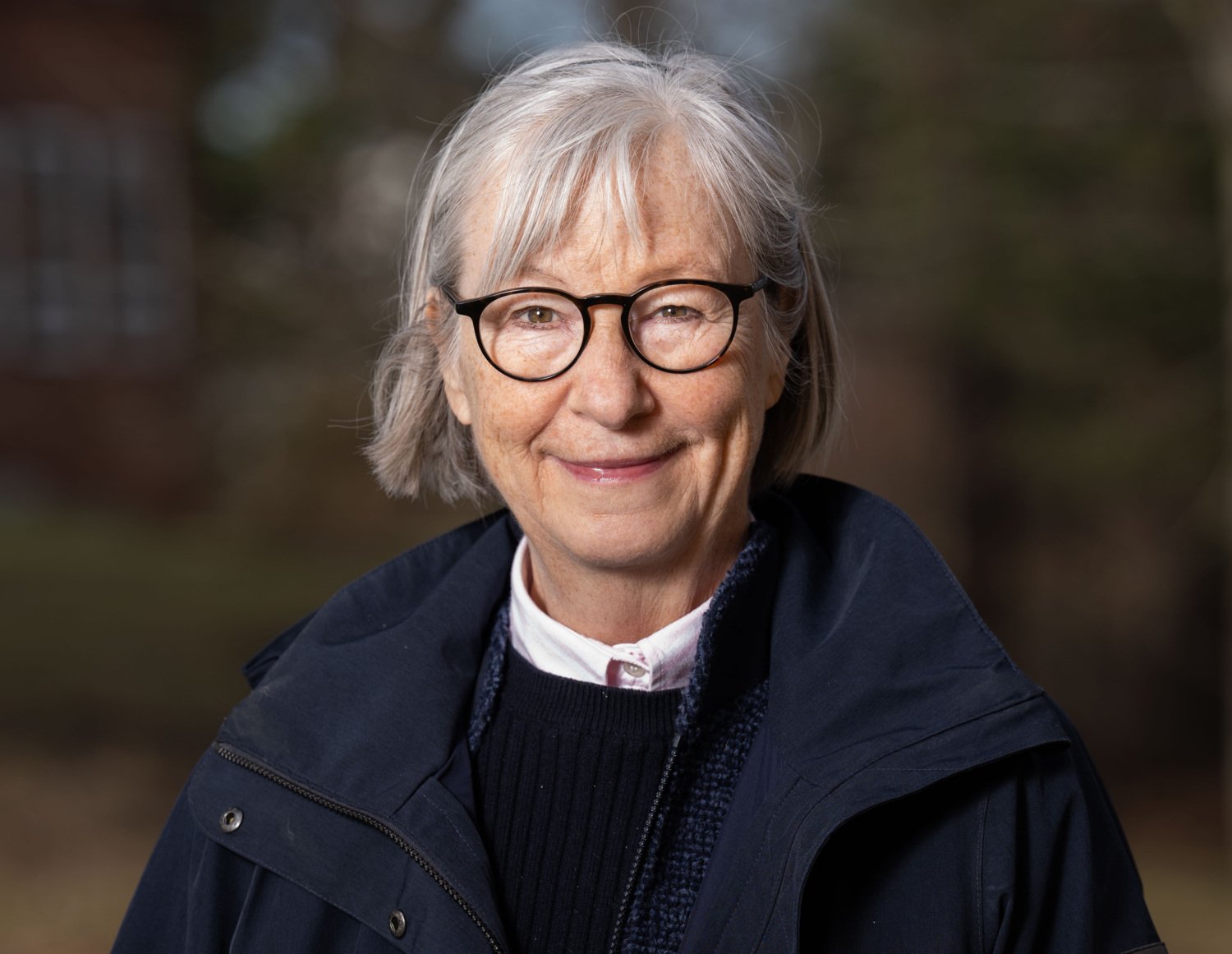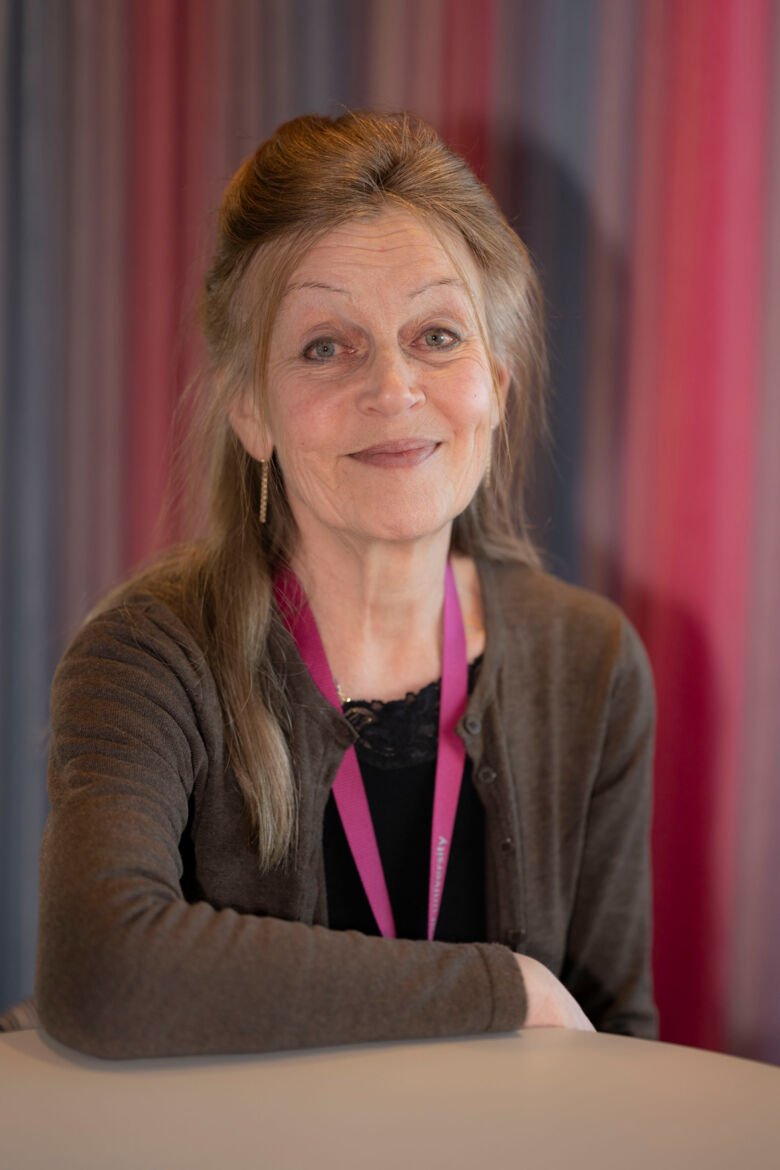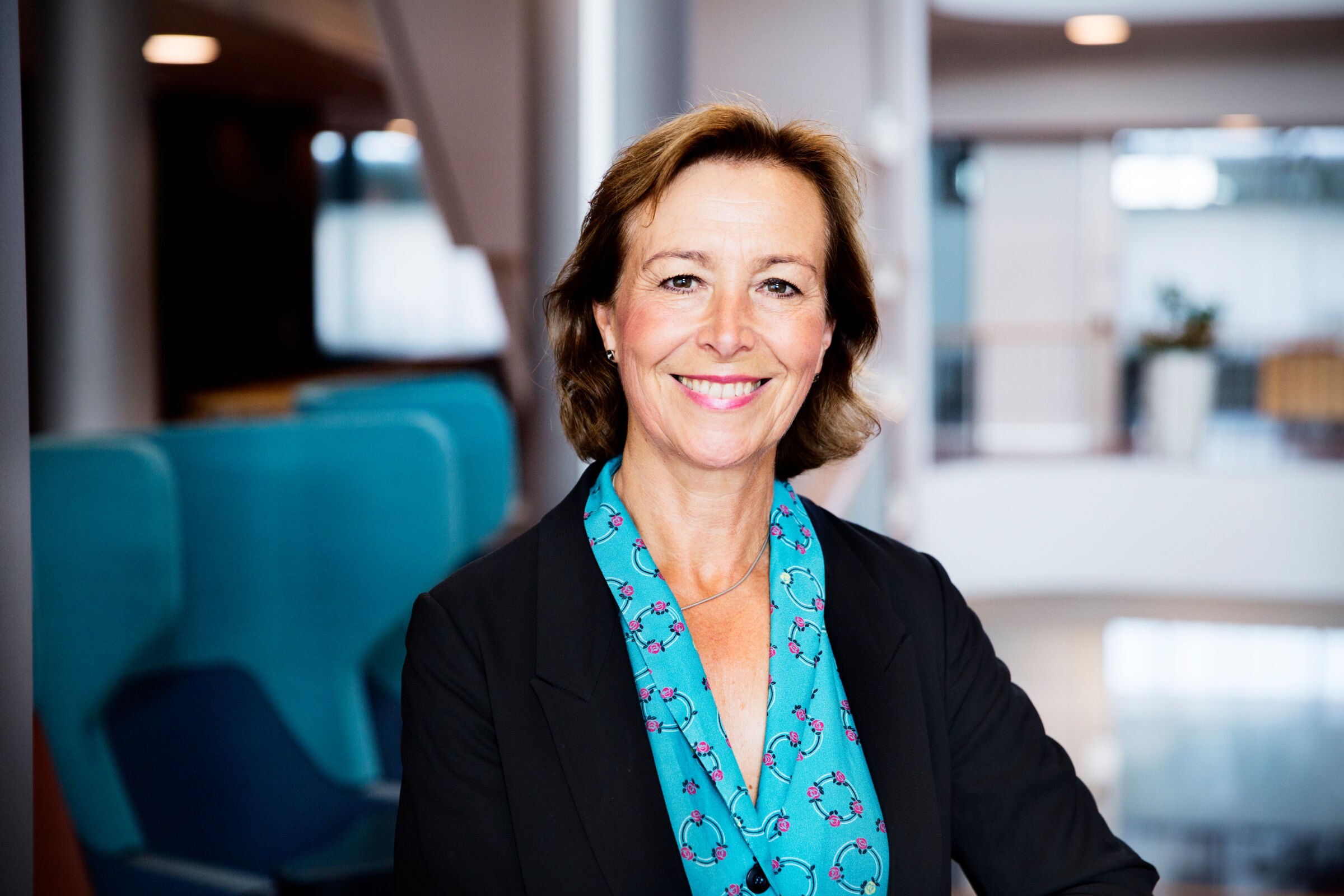Occupational therapy are academicised under the NVS umbrella
After many years of planning, the then Stockholm College of Health Sciences merged with KI in 1998. The move added seven new courses to KI’s offering for occupational therapists, audiologists, midwives, biomedical analysts, nurses, X-ray nurses, and dental hygienists. The primary aim of the nationalisation of nursing training was to improve the quality of, and access to, research.
Research areas contested

Research and training in occupational therapy conducted at the Stockholm College of Health Sciences was incorporated in what was then called Neurotec. Among those who became part of the department was Lena Borell, Professor of Occupational Therapy. Borell was the first teacher on the programme to receive a doctorate in Occupational Therapy in 1992 with Winblad as the main supervisor. She subsequently began work to further develop KI’s Occupational Therapist programme into an academic university education with research and postgraduate training.
“It made sense for us to join the then Division of Geriatrics because we had a shared perspective on dementia research. We were very early, even internationally, in building up research in occupational therapy, so we constantly faced questions: should these uneducated women, not even real medics, really be doing research? But we were convinced that we had something to contribute, and that applied to everyone from occupational therapists to physiotherapists and nurses. We didn’t give up.”
Sweden was early in developing occupational therapy research, but it was also a struggle between different authorities. In 2001, Borell became Europe’s first professor of occupational therapy. Her research has constantly evolved at the intersection between everyday life, care and social care. Her focus has been on occupational therapy and rehabilitation, often with the goal of improving the everyday lives of nursing home residents.
Among other things, the project has resulted in the establishment of the Verklighetslabbet clinical training centre at Stureby nursing home, south of Stockholm, a dementia care home with approximately 90 residents. Verklighetslabbet is a permanent testbed and development environment for testing projects with a focus on equal welfare technology and digitalisation, as well as the development of new forms of care and housing. Interdisciplinary research is also conducted, with researchers from KI, the Royal Institute of Technology, Södertörn University and elsewhere collaborating.
Internationally inspired
From the outset, the development of occupational therapy has been based on strong international collaborations. The early academisation of the subject has made NVS’s Division of Occupational Therapy a model for universities in other countries. Doctoral students from countries that did not have their own doctoral programmes in occupational therapy applied here early on.
In 2005, Lena Borell launched the Aging in Place research programme, which over the next six years involved essentially everyone at the then division. The programme meant a great deal to progress and produced a string of doctoral students. Aging in Place was later followed by additional multi-year programmes focusing on developing knowledge in four areas: use of digital products, preventing loneliness among the elderly, nursing home design, and technical support to contribute to the health and well-being of the elderly.
One of the researchers who understood early on the importance of technology for people with dementia was Louise Nygård. She was also Borell’s first doctoral student and received her doctorate in 1996. Her research has been based on the perspective of the elderly and has focused on areas such as how technology can be used to help people remain at home for as long as possible.
The results of the project have included assessment instruments that indicate people’s ability to use technology in everyday life. These instruments have been commercialised and are now used in clinical settings by occupational therapists and have been sold to other countries.
“We tackled the question: how do you cope with using everyday technology if you have a cognitive impairment or dementia? As we were the first to look at this, we developed research methods and tools. Our work had major international impacts.”

Nygård’s research has also created a completely new line of research that examines participation in life outside the home for people with dementia or cognitive impairment. The research is international with participation from countries such as Switzerland, Canada and the UK. The project seeks to compare and learn from how people in different countries cope with everyday life. What support and tools are there in different countries, and can methods, technology and working methods be shared between countries?
Nygård was also part of the Swedish Brain Power network to investigate how the ability to use everyday technology could be used as a marker for early cognitive decline. She has also been extremely active in the development of postgraduate education and the Research School in Health Science (FiH).
Borell also supervised Kerstin Tham, now professor and Vice Chancellor of Malmö University, where she was a doctoral student. Tham completed her doctorate at the Division of Neurology and then joined NVS at the Division of Occupational Therapy.
“Ever since its inception, NVS has thrived on an innovative spirit that has created a highly creative work environment. Over the years, the Department has played a key role in linking research to clinical activities in the healthcare system.”

Early on, Tham’s research had the goal of creating a better understanding of those who have suffered brain damage or neuropsychological impairments, such as a stroke. She has developed new assessment instruments and contributed to the development of new rehabilitation methods.
She helped establish the then Occupational Therapy Division, became Head of Department at NVS, and then went on to hold increasingly higher management positions at KI. Throughout this journey, Tham has maintained a strong focus on increasing collaboration and co-operation with Stockholm County Council (now Region Stockholm).
Tham was also one of the initiators of Stockholm’s network of academic health centres. When the network merged with the Center for General Medicine, CeFAM, in 2015, the Academic Primary Care Center was formed. Today, this is one of the hubs for the region’s clinical collaboration between academia and healthcare.
Tham was appointed Vice Chancellor of Malmö University in 2015.
